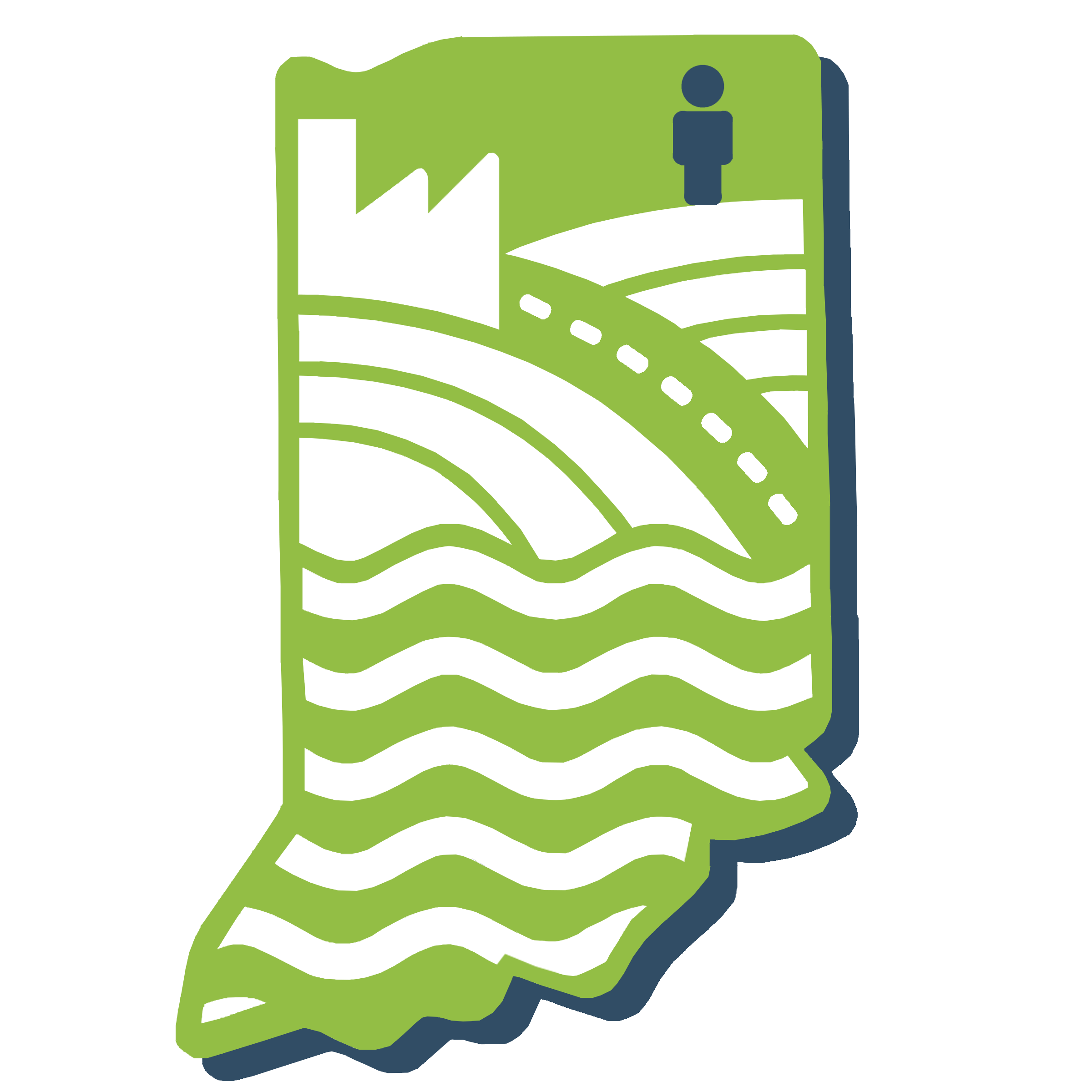In 1973, the Indiana General Assembly enacted legislation that provided each of its 92 counties the option to adopt a new, local income tax called a County Adjusted Gross Income Tax (CAGIT). In 1984, the legislature enacted another optional tax, called the County Option Income Tax (COIT). Then, in 1987, a third income tax option was introduced, this one specifically to spur economic development. It was called the County Economic Development Income Tax (CEDIT). CEDIT was enacted to stand alone or supplement either or both of the first two taxing options.
In 2015, the Indiana General Assembly enacted legislation to simplify things. It replaced the three individual taxing options with a single Local Income Tax (LIT). According to a report published by the Indiana Fiscal Policy Institute, all 92 counties in Indiana currently collect LIT at an average rate of 1.6%, well under the general limit of 2.5%. The current LIT rate in Noble County is 1.75%.
LIT taxes are collected through paycheck withholdings. The funds ultimately go into accounts held by the state, one for each county, to be distributed back to the counties. There is a two-year lag between when the state collects LIT and when the funds are distributed back to counties. Distribution amounts are based on the county’s past collections and are split into three portions. These are designated as Certified Shares, Public Safety, and Economic Development. The portion earmarked for economic development may be referred to as “LIT – Economic Development” or CEDIT.
When the legislature first established CEDIT in 1987, and Noble County chose to collect the tax, the use of the funds was restricted to economic development initiatives meant to attract real and personal property investments and create more jobs.
The county does not keep the full amount of economic development funds it receives. By state statute, Noble County keeps 50% of the allocation and the remainder is distributed to each of the county’s incorporated cities and towns. Cities and towns receive funding proportionate to population, with Kendallville receiving the largest portion, followed by Ligonier, Avilla, Albion, Rome City, and Cromwell. Cities and towns, in turn, can determine how they will utilize their portion of CEDIT funds – just as the county can.
When the Noble County Economic Development Corporation (EDC) was established in 2006, Noble County commissioners decided to give $140,000 of CEDIT money to support the new organization’s operating expenses. Over the years, the commissioners have continued to support the EDC’s general operating budget with contributions ranging from $100,000 to $120,000 annually.
Noble County has also invested every year, since 2008, to seed and grow the Investment Trust Fund (ITF), a separate fund stewarded by a committee of financial and business leaders in Noble County. The ITF is administered under the EDC and is tasked with determining if and when to invest in infrastructure and other high-impact development opportunities across the county. The ITF has distributed more than $2.5 million since inception to fund projects that have resulted in industrial expansions, job growth, upgrades at the Kendallville Airport, community center development, an industrial shell building, and quality of life improvements such as a sports complex and trail systems. In nearly every case, an investment from the ITF was used to meet a “local match” requirement in order to leverage significantly more funding through grants and private investments.
Noble County and its communities have also invested CEDIT funds, on occasion, for workforce development training programs. More recently, the commissioners agreed to cover fees for services to NEI, northeast Indiana’s regional partnership, using CEDIT funds. NEI catalyzes a wide range of regional collaborations and provides data services, talent attraction, and business attraction initiatives for all 11 counties that make up the region. Noble County pays over $22,000 annually for those services.
Noble County’s incorporated communities contribute various amounts of CEDIT funds to support the EDC’s operations as well. The EDC provides support to cities and towns that includes human resources to help catalyze and lead projects, for grant writing, to support employers seeking business incentives, for data services, and other collaborations that spur growth and enhance quality of life.
In 2017, Indiana enacted new rules that effectively removed the restrictions on how CEDIT funds can be used. On the heels of simplifying local income taxes with the introduction of LIT in 2015, local tax collections may now be used for virtually anything necessary to operate local government. Governmental entities are no longer required to spend local income taxes on economic development-related activities. A wide range of other needs, and requests for funds, mean that local economic developers must compete with other requestors for a piece of the pie.
The Noble County EDC, whose sole mission is to enable a thriving economy, reorganized in 2022 in an effort to become less reliant on public support and develop new revenue streams. Be Noble Inc. was incorporated in 2022 as a 501©3 nonprofit, charitable organization. Be Noble took over the role of local economic development, effectively shifting from Noble County Economic Development Corporation to Be Noble Inc. to carry on. This restructuring enables more private investors to support local economic development and receive a tax break for charitable contributions. It also opens up opportunities to pursue more grant opportunities.
Be Noble Inc., this year alone, has received grant commitments of nearly $150,000. These funds are restricted solely to bring new talent development opportunities to Noble County. Engage Noble Leadership Academy will begin classes on October 12 to cultivate adult servant leaders. Manufacturing Experience 2023 is a technology-based day camp for middle schoolaged learners that will be held on October 28. Grant funds are not generally available to support general operating expenses, but they can often be secured for programs and related capital expenses.
What lies ahead for Indiana’s LIT and how funds are distributed is uncertain. In a report published in September 2021 by the Indiana Fiscal Policy Institute, Dr. Larry DeBoer, Professor Emeritus of Agricultural Economics at Purdue University, looks at the two-year delay between when LIT is collected and when the funds are distributed to counties. In 2020, the total balances in county accounts held by the state approached one billion dollars, representing more than 30% of annual LIT distributions. Dr. DeBoer finds that rules for managing LIT balances and distributions could be eased to release significant dollars to local governments and reduce the gap between collections and distributions. The report, Indiana’s Local Income Tax: Distributions and Balances in Recession and Expansion, can be found at indianafiscal.org.
This guest article was published by KPC Media in the News Sun on October 17, 2023. It is one of a series of guest reports written by Lori Gagen, Operations Director at Be Noble Inc.



